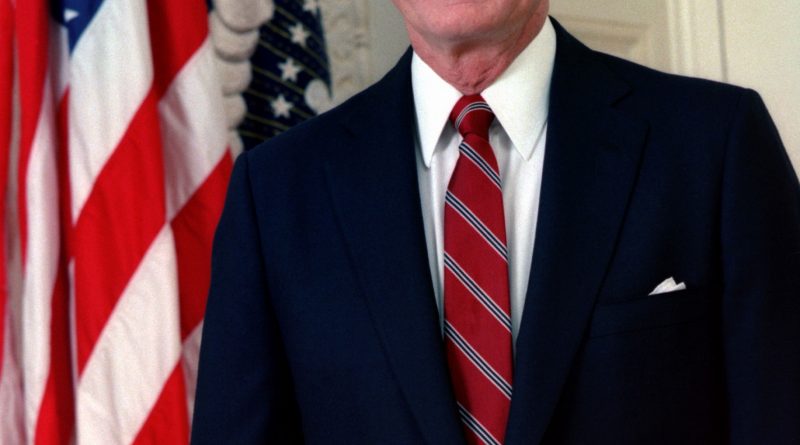Former President George H.W. Bush Dies at 94
By Jarrett Dang
Staff Writer
Former U.S. President George H.W. Bush passed away at the age of 94. A representative for the Bush family confirmed the 41st president’s death on November 30th, 2018, according to the Associated Press.
The cause of his death has not yet been confirmed, but in the last few years of his life, Bush was confined to a wheelchair due to Parkinson’s disease. The former President was also admitted to a hospital in April for a blood infection, according to the New York Times.
Former presidents Barack Obama, George W. Bush, Bill Clinton, and Jimmy Carter issued statements in remembrance of Bush. Sitting President Donald Trump declared a national day of mourning to commemorate his life and presidency.
On Monday, December 3, Bush’s body received a 21-gun salute in Texas before being flown to Washington, D.C., where he was laid in state in the Capitol building, reports the New York Times.
President Trump along with others such as Speaker of the House Paul Ryan and Vice President Mike Pence visited the coffin and paid their respects.
The New York Times reports that Bush’s state funeral was held on Wednesday, December 5, at the Washington National Cathedral. All four former living presidents and numerous world leaders gathered to mourn the 41st president.
Among the world leaders in attendance were German Chancellor Angela Merkel, the United Kingdom’s Prince Charles, and Jordan’s King Abdullah.
Former President George W. Bush, President George H.W. Bush’s elder son, delivered a tearful eulogy, speaking about his father’s accomplishments and saying that he was the “best father a son or daughter could ask for.” Bush’s body will lie in his own presidential library at Texas A&M University, College Station.
The late president was a naval aviator during World War II and received the Distinguished Flying Cross for his actions in battle at Chichijima.
Winning the presidency in 1988 in a landslide victory against the Democratic challenger Michael Dukakis, Bush portrayed his opponent as soft on crime and unfit to be the nation’s commander-in-chief while flexing his own military credentials, reports the New York Times.
George H.W. Bush’s four years in office were defined by his prudent approach to U.S. foreign policy. Even before taking office, Bush was a seasoned veteran in the world of international affairs, serving as the Director of the Central Intelligence Agency, the U.S. Ambassador to the United Nations, and the U.S. Envoy to China.
One of his first major foreign policy actions in office was continuing Ronald Reagan’s policy of engagement with the Soviet Union under Premier Mikhail Gorbachev. Like Reagan, Bush formed a working relationship with Gorbachev and oversaw the fall of the Berlin Wall, the reunification of Germany, and the eventual collapse of the Soviet Union itself.
According to Foreign Affairs, Bush smoothly navigated the reunification of East and West Germany by masterfully negotiating with all relevant parties. Bush inducted the newly reunited Germany into NATO and showed considerable diplomatic might by convincing Gorbachev to accept what could have been viewed as American encroachment.
When the Soviet Union collapsed in late 1991, President Bush helped stabilize the region and prevented it from falling into chaos. Foreign Policy states that his tactful, prudent nature made him think better of touting U.S. victory in grandiose speeches, but instead drove him towards working with Gorbachev. Bush also worked with the newly-elected Russian president Boris Yeltsin to maintain stability in the new former-Soviet republics.
Bush’s most notable foreign policy move was the initiation of the Persian Gulf War. On August 2, 1990, Saddam Hussein, Iraq’s dictator, invaded neighboring Kuwait over disputes about Iraq’s debts. Iraq seized Kuwaiti oil fields and annexed the country, claiming that Kuwait was now part of Iraq.
The international community, led by the United States and other Western powers, demanded that Iraq withdraw or face military action. Saddam refused, and the American-led Coalition, consisting of 34 countries and authorized by the United Nations, went to war.
A prolonged 5-week air bombing campaign called Desert Storm neutralized Iraqi assets in preparation for a final push on the ground. On February 24, 2001, the U.S.-led coalition launched a ground offensive to retake Kuwait and push the Iraqis back.
The Iraqi army crumbled in less than 100 hours and was in full retreat. The coalition decided not to push all the way to Baghdad and topple Saddam Hussein as Bush believed regime change was not warranted. The war was a resounding victory for Bush at home, and his approval rating skyrocketed to 89 percent.
For all of Bush’s foreign policy successes, domestic politics cost him the 1992 Presidential election to Bill Clinton. The Economist notes that the United States was in an economic recession and despite Bush’s famous campaign promise of “No New Taxes,” he felt obligated to sign off on a tax hike.
George H.W. Bush’s legacy will be that of a strategic and sensible foreign policy leader that navigated America’s international interests with care through the turn of the century and helped establish the U.S. at the head of the post-Cold War “new world order.”



